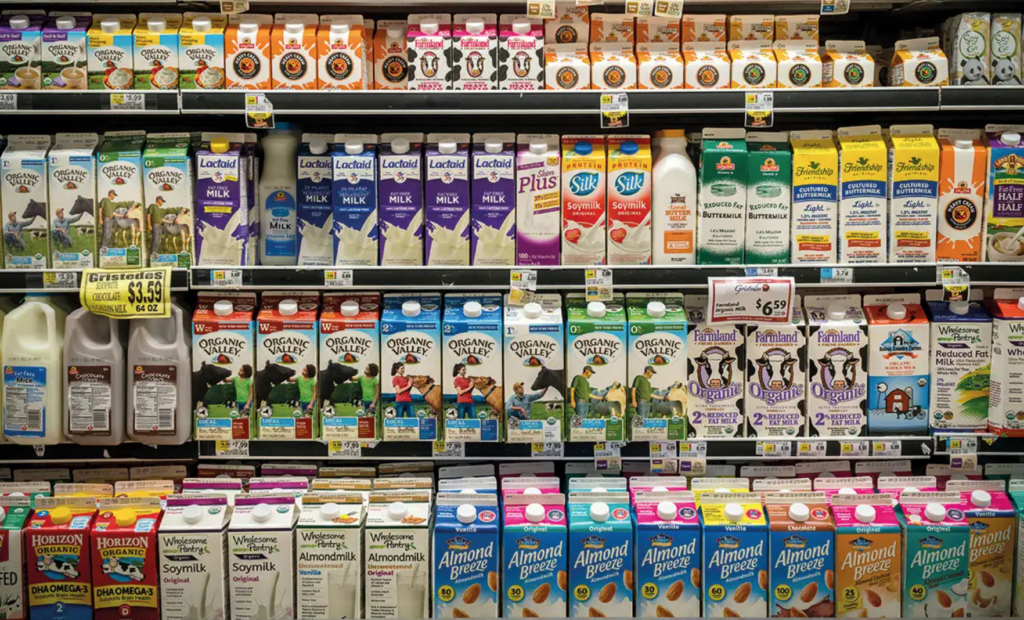Last week, the US Food and Drug Administration (FDA) issued a draft guidance for plant-based milk labels, positing that almond, oat, soy and other milk alternatives can continue using the term “milk.” However, the guidance states that if brands choose to do so, they should also add text on the front of the package indicating how they differ nutritionally from cow’s milk.
“The draft recommendations issued today should lead to providing consumers with clear labeling to give them the information they need to make informed nutrition and purchasing decisions on the products they buy for themselves and their families,” said FDA commissioner Robert M. Califf, in a press release.
For years, dairy producers have been probing the FDA to crack down on plant-based drinks and other products that they believe take advantage of animal-based foods and cloud the real meaning of “milk.” As such, under the draft rules, the agency recommends that beverage manufacturers label their products clearly by the plant source of the food, such as “soy milk” or “cashew milk.”
Related: Here’s How the FDA Plans to Update Food Labeling Mandates
Since most plant-based milk labels already clearly state the plant source, the draft guidance also suggests that plant-based milk companies include a statement explaining how the product compares with dairy milk. This could mean that, in the future, plant-based milk labels might state “contains lower amounts of vitamin D and calcium than milk” or “contains less protein than milk.”
The FDA has deemed this disclosure essential because the nutritional composition of plant-based milks varies widely within and across types and many of them don’t contain the same levels of key nutrients as milk. For example, almond milk and soy milk can contain calcium, but their comprehensive nutritional value differs from cow’s milk.
Dairy foods are an important source of protein, calcium, vitamin A, vitamin D, magnesium, phosphorus, potassium, riboflavin, vitamin B12, zinc, choline and selenium. Of these, three — calcium, potassium and vitamin D — have been flagged in the US Department of Agriculture’s (USDA) Dietary Guidelines as dietary components of public health concern because people aren’t consuming enough of them.
Soy beverages fortified with calcium, vitamin A and vitamin D are included in the dairy category in the guidelines because they are similar to cow’s milk based on their nutrient composition and use in meals. However, many other plant-based milks don’t make the cut.
This is not the first time the FDA has gotten involved in the regulation of plant-based milk labels. In 2018, the agency asked plant-based milk makers to provide specific information on labeling their products. Although consumers understand plant-based alternatives do not contain dairy, many do not know the nutritional variation between cow’s milk and plant-based milks.
The FDA suggests companies use the USDA’s Food and Nutrition Service fluid milk substitutes nutrient criteria to see if plant-based milk products have similar nutritional value to that of cow’s milk. Consumers can also utilize the FDA’s Nutrition Facts label to determine any nutritional value of a product.
While the draft guidance is non-binding for the time being, companies are frequently targeted in class action lawsuits if they choose to ignore it. In the meantime, the FDA is taking comments on the proposed guidance before it becomes legally binding.












Join or login to leave a comment
JOIN LOGIN